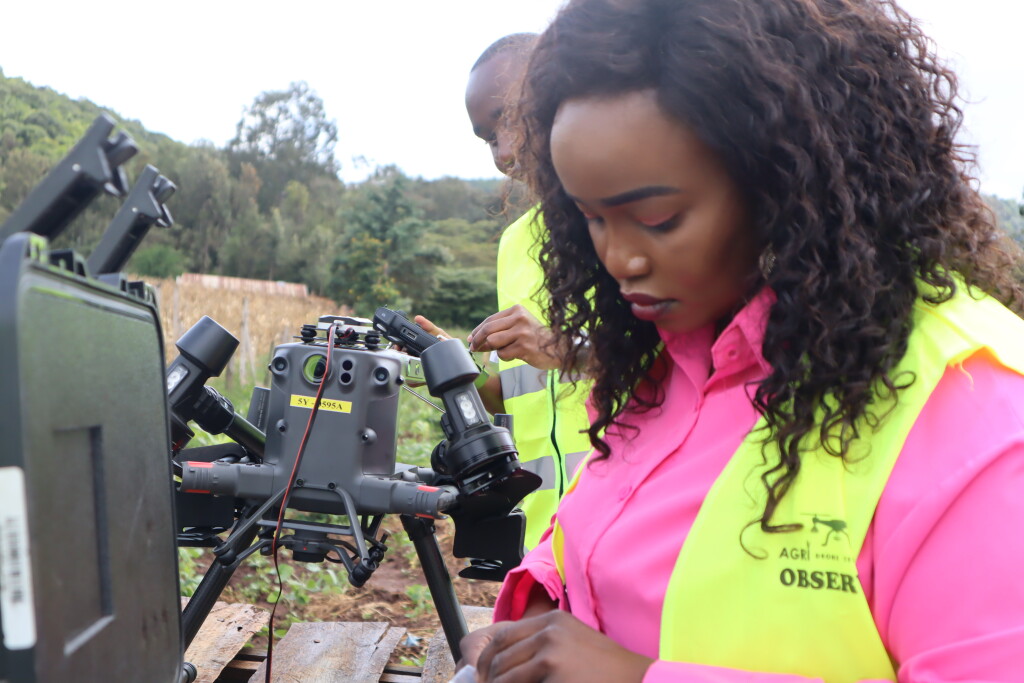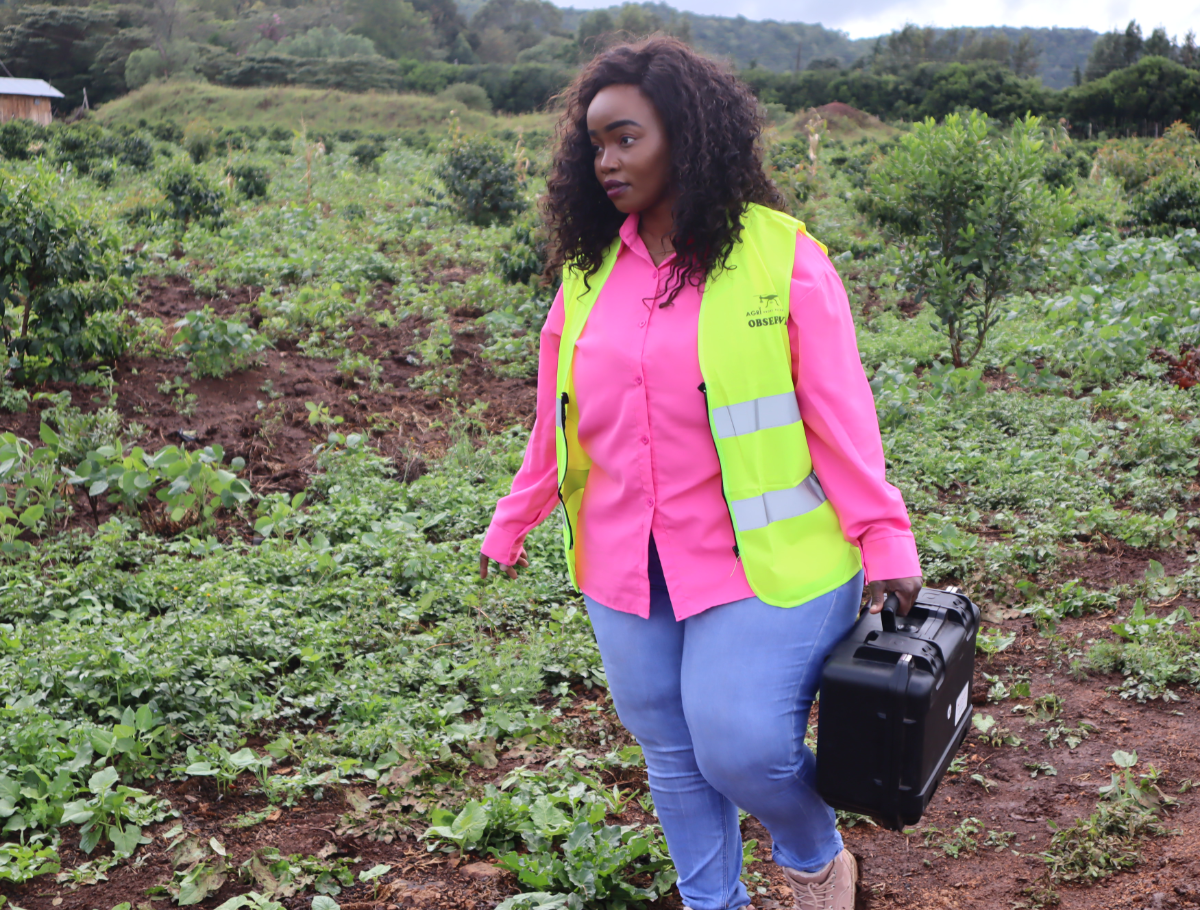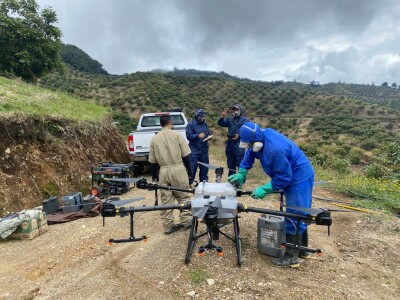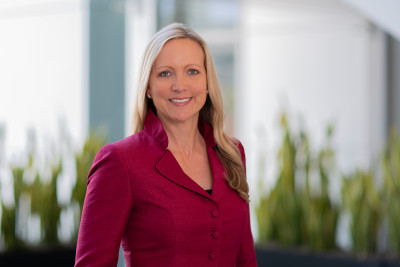Lyela Mutisya rarely stops moving.
On any given day she can be found managing the day-to-day needs of running her agriculture technology startup, Agridrone Technologies, meeting with investors, setting up a demonstration of her company’s precision agriculture services and tools to potential clients, or giving a presentation at an AI or technology conference - and often more than one at time.
Though she’s had a Part 107 pilot license since 2017, her work in drone-based agriculture stretches far beyond the definition of ‘drone pilot.’ With Lyela at the helm, her Kenya-based company is pioneering the use of drones in African agriculture, and exploring new possibilities every day.
The Realization of a Dream
Though she was born in Kenya, Lyela grew up and completed her undergraduate education in the United States, graduating with a Bachelor of Science in Aviation Administration (with a minor in Unmanned Aircraft Systems) in 2017 at Lewis University in Illinois, and passed her Part 107 certification shortly after.
Throughout her educational journey, she always hoped that she’d have an opportunity to take what she learned back to Kenya - and she got that opportunity during the COVID-19 Pandemic. She took a job working for LifeBank, working on last-mile medical deliveries in Ehtiopia, and trying to start the same in Kenya.
While this experience helped solidify her UAV skills, it was her family’s history in agriculture that inspired her next move. Lyela had farms on her mind for most of her life. When she traveled to Kenya in 2014, she learned about her father's life as a coffee farmer, and the challenges coffee farmers face - the high input prices, and low returns. Those challenges were resulting in farmers giving up coffee for other crops that offered a higher return, or selling their land for development and giving up farming altogether. This is when she knew that she wanted to use drone technology to help farmer lower their input costs, as well as to help the make more money and continue their farms.
As part of her education, she’d taken a brief internship with UAV sensor manufacturer Micasense and got introduced to drone-based remote sensing. The experience lit a spark that stayed with her ever since. “I have always been passionate about agriculture, and I was really excited about what technology could do to help farmers in Africa,” she said.
So in 2022, she decided to set off on her own; ultimately founding Agridrone Technologies. Her vision is to work with farmers to collect data that can be analyzed to determine the health of vegetation (and spot diseases), to count plants and to classify them, and even detect when there are weeds where they shouldn’t be. In addition, her work has expanded to help with the latest research in crop management and to manage forest inventories and other economically valuable pursuits. While drones are the primary vehicle for this work, Lyela likes to look at it from the analytics side.
“We are really a data company that uses drones to collect data,” she laughed.
In the beginning, she was responsible for all of the inner workings of the company herself, even down to creating the company logo and website. She now has co-founders who have connections that have helped with fundraising, so her company can grow with her aspirations. Though very much still in startup mode, Lyela is taking on the task of writing proposals, doing field demonstrations, testing out equipment and finding partners and customers that her company can work with.
All About Preparation
 In addition to running the company, Lyela frequently does demonstration flights and flights for clients who are looking to get information about their farming operation, or that want to evaluate whether dones would be a good fit for their business. But this takes more than just showing up and putting a drone in the area.
In addition to running the company, Lyela frequently does demonstration flights and flights for clients who are looking to get information about their farming operation, or that want to evaluate whether dones would be a good fit for their business. But this takes more than just showing up and putting a drone in the area.
Before going out for a demo, she likes to meet with the potential customer to answer what questions and issues they have. Farmers with different farm sizes, different crops, or different problems will all have differing needs, and Lyela makes sure that she is selecting the right process and tools for the right job.
Prior to going out to the site, Lyela has already done all the necessary due diligence to check the weather and get authorization approval from the Kenya Civil Aviation Authority (KCAA).
“It’s a lot of planning,” says Lyela, “I had to learn the hard way initially. As time goes, you become better at being more organized, doing things in advance, and checking to make sure you’re not leaving anything behind, so when you get to the field you’re not trying to figure things out there.”
“One thing I always do is check the checklist. I go through and make sure we have batteries charged, have the SD card, that the sensor is ok, that everything is updated,” she says. “You don’t want to get into the field and the drone can’t take off because you need to update something.”
Once she’s done her flights, she takes the SD card and checks that the data is there even before leaving the area, just as a precaution. She then returns to her hotel, uploads the data, and works to produce the deliverables the client asked for.
Drones and Coffee
While most of us take the availability of coffee for granted, in Kenya, it is a central livelihood and major export. Kenya is home to the renowned arabica coffee varieties, that are known for their complex and intense flavors. But growing coffee in Kenya presents major challenges, as they fight diseases and pests that are prevalent. And, unfortunately for coffee connoisseurs, this has pushed a shift for growers to begin switching away from the arabica varieties towards more disease-resistant strains, or to decrease production altogether.
Returning to her family’s coffee background, Lyela’s company has recently partnered with The Coffee Research Institute under the Kenya Agriculture and Lifestock Research Institute (KALRO), working on projects to test how well drones can be used to detect diseases, watering needs and other threats to the crop.
“We are doing R&D to find out how drone technology can help farmers detect diseases such as coffee leaf rust, and help them with managing their inputs better - so they are ultimately using less inputs but still growing quality coffee,” says Lyela.
“This current project is something I’ve been talking about since I was in America in 2016 - and it’s just something that’s close and dear to my heart. I’m really, really excited to finally do this project.”
Trusting and Adopting Drone Technology
While Lyela often sees news of new use cases for drones as inspiration for future endeavors, sometimes encouraging the adoption of technologies like drones at a government level can be challenging. Lyela has been advocating for the use of drones for agriculture since her passion was first sparked.
“I remember when I came to visit in 2016 and had some high-profile meetings with people within the government, and everyone was very hesitant, worried that the technology was used to spy on people. Nobody really knew what drones were or what they were capable of doing.”
“But now, more people are aware of drones, and people are now willing to explore this technology.”
Lyela credits the KCAA for supporting those with similar entrepreneurial dreams.
“They’re really trying to embrace this technology and take the technology to help our country - so I’m really excited to see a lot of people now very psyched about it.”
Lyela’s Vision
When asked what she found rewarding about her work, she went back to the work being a realization of the dreams of her youth. “When I was in high school, I had a dream to come here and do research in coffee so I could see how to potentially help coffee farmers globally. Just being able to do it - for me, I feel like that’s fulfilling.”
“My advice for anybody reading this is that they can achieve anything they want to achieve anywhere in the world. If you have a vision it doesn’t matter how long it takes to achieve it. I always say delay is not denial - just keep pushing your vision.”
“Networking” is often touted as the silver bullet for entrepreneurs, but Lyela’s approach is not to just make contacts, but to keep them and follow up, and stay in their mind.
“We go to conferences, we exchange cards - but one thing I learned is just to keep in contact. Keep in touch with people, every holiday send them a message, check on them. Now I can reach out to those people and say I’m here, I’ve done steps A,B,C,D and just need help with this - and they’ll be quick to hop on board and help.”
The one thing that Lyela wants the Commercial UAV audience to know about Kenya is that there is a lot of opportunity here.
“If anybody wants to come up here and explore, we’d love to help you - Kenya’s a beautiful country. I’m grateful to be here doing something that I said that I wanted to do, finally doing it, and opening doors for other companies to come here and do the same.”
















Comments